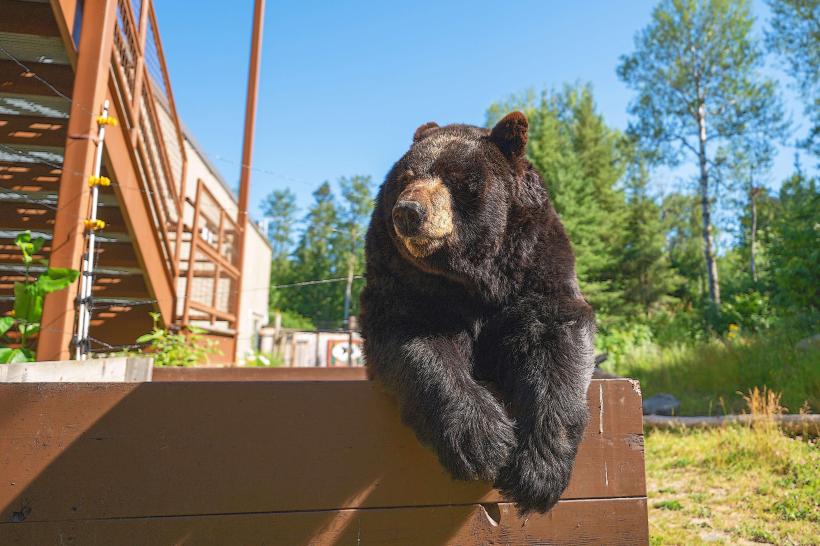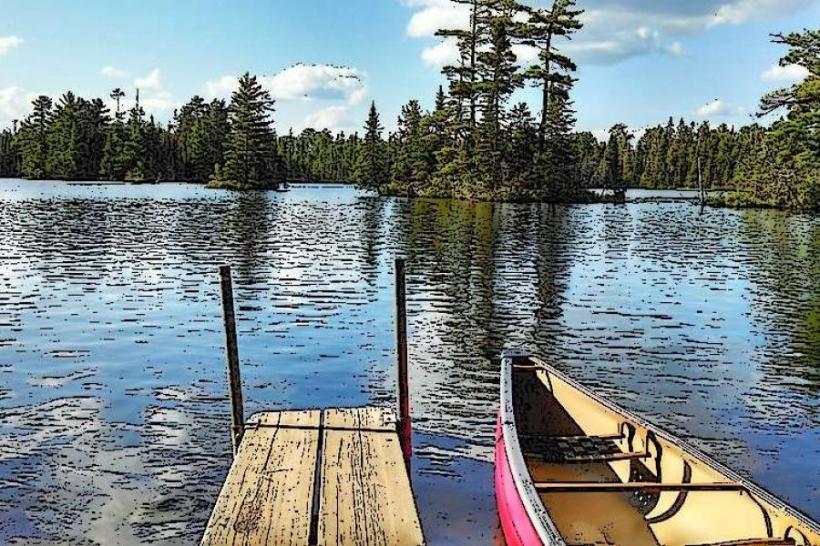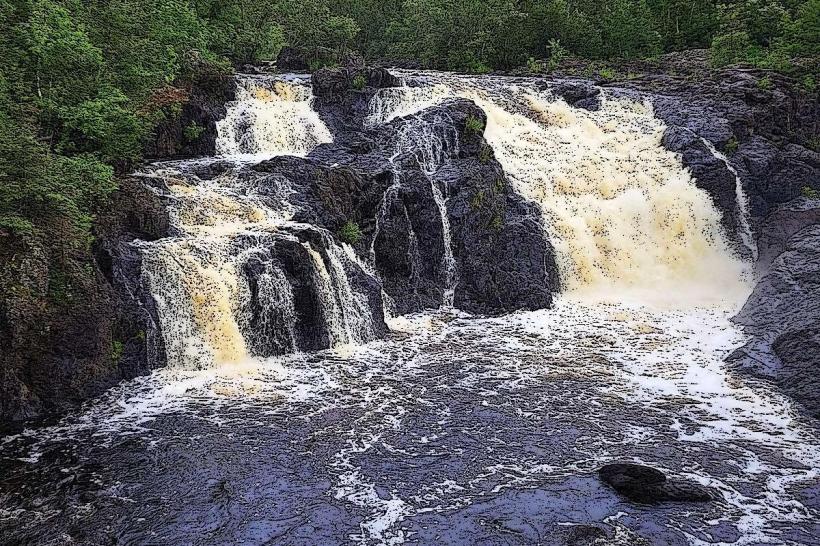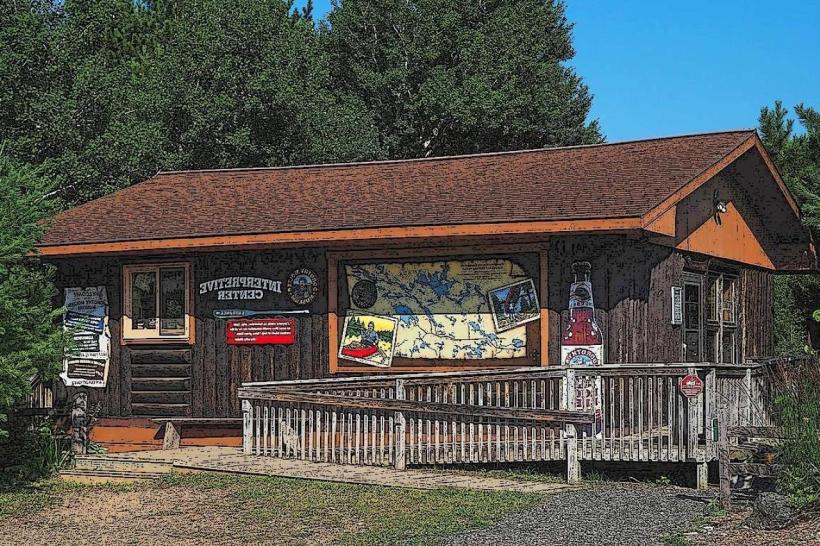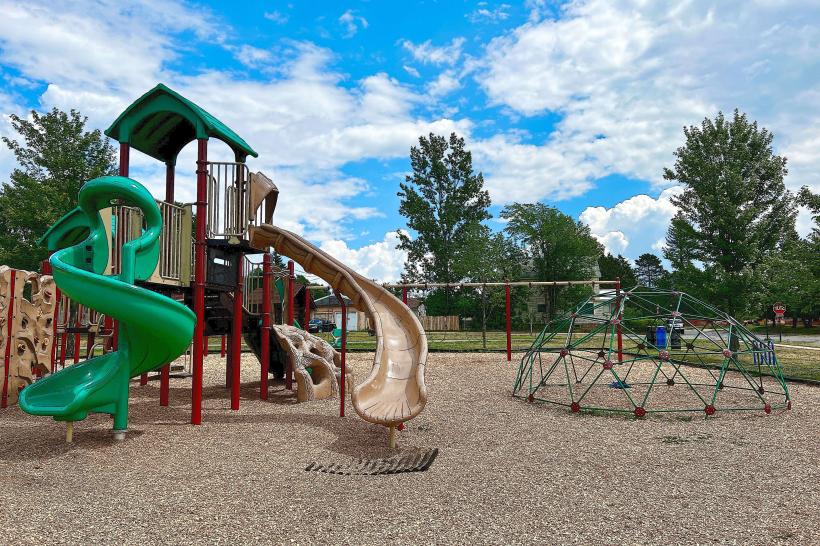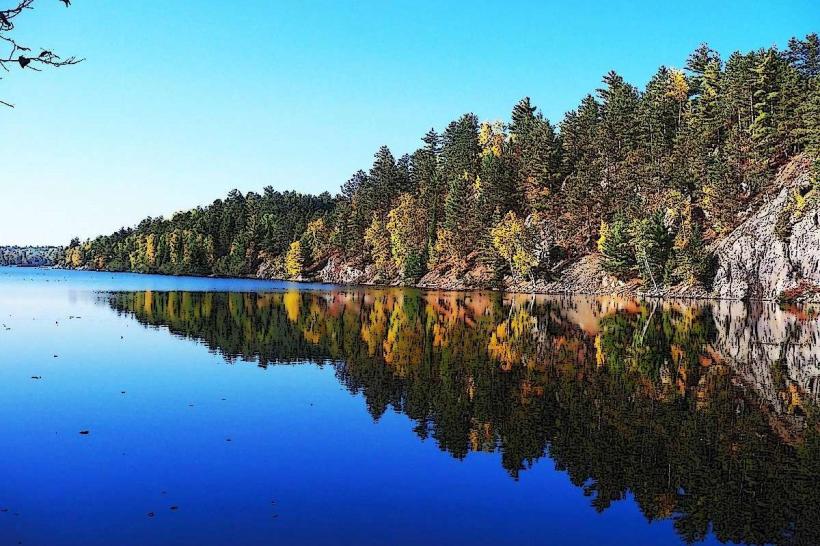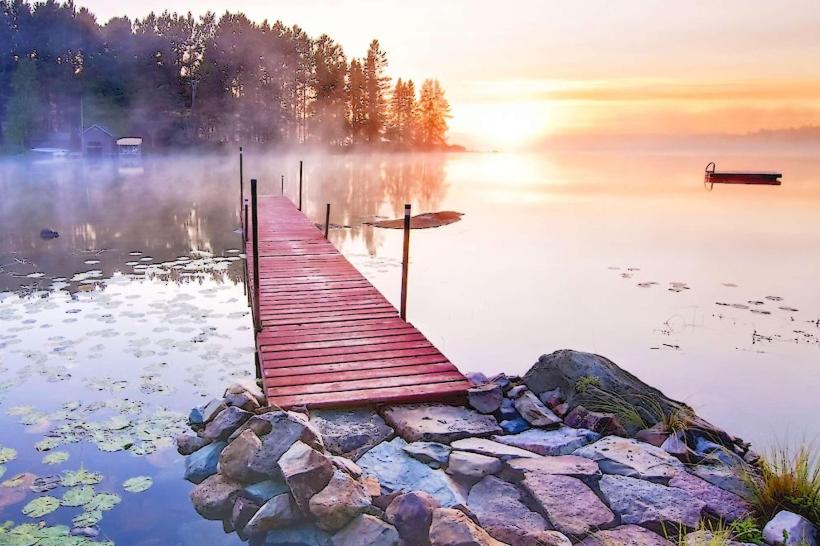Information
Landmark: International Wolf CenterCity: Ely
Country: USA Minnesota
Continent: North America
International Wolf Center, Ely, USA Minnesota, North America
International Wolf Center (Ely, Minnesota) – In Detail
Overview and Foundation
The International Wolf Center is a nonprofit educational facility located in Ely, Minnesota, dedicated to the mission of educating the public about wolves, their relationship to wild ecosystems, and the role humans play in their future. Founded in 1985 by world-renowned wolf biologist Dr. L. David Mech and other conservation advocates, the center opened its flagship facility in 1993. It has since evolved into one of the world’s premier wolf education institutions.
The idea was born out of the need to bridge the gap between scientific understanding of wolves and public perception. Mech, who spent decades studying wild wolves (particularly in Isle Royale and northern Minnesota), sought to create a space where facts would dispel fear and myths. The result was a fully immersive center that combines live wolf exhibits, interpretive displays, and hands-on educational programs with a commitment to science-based education.
Location and Setting
The center is located at 1396 Highway 169, just east of downtown Ely, in the heart of Superior National Forest. This location is not arbitrary-it sits adjacent to vast tracts of protected land including the Boundary Waters Canoe Area Wilderness (BWCAW), which is prime wolf territory. Ely itself is one of the few towns in the continental U.S. where wolves are still regularly seen or heard in nearby woods, making the center’s presence there especially meaningful.
The architecture of the building reflects its educational purpose and connection to nature. The structure includes panoramic viewing windows shaped and angled to suggest the silhouette of a wolf's head and ears, giving visitors both symbolic and literal perspectives on wolf life.
Resident Wolves and Viewing Experience
The center’s core feature is its Ambassador Wolf Pack, which lives in a 1.25-acre naturalized enclosure visible to guests through large indoor viewing windows. These wolves are not domesticated, nor are they traditional zoo exhibits. They live in a carefully monitored, semi-wild environment that mimics their natural habitat as much as possible, including rocks, trees, and dens.
Each wolf in the pack plays a role in education. They allow researchers and staff to interpret natural wolf behaviors-such as dominance displays, scent-marking, howling, and hunting behaviors-for the public. Wolves may include:
Great Plains wolves (Canis lupus nubilus)
Arctic wolves (Canis lupus arctos)
Northwestern wolves (Canis lupus occidentalis)
Wolves are introduced to the pack approximately every four years. Pups are raised within the pack to socialize naturally and are used to teach the public about life stages and development. In spring 2025, a new pair of pups was introduced and integrated into the viewing and educational programs.
Live wolf-viewing is possible year-round, but behavior varies. Wolves are more active in early morning and late afternoon, especially in cooler months. The center also operates live webcams, allowing remote visitors and classrooms to watch in real time.
Exhibits and Interpretive Areas
The exhibits are designed to provide a multi-sensory learning environment. Highlights include:
“Discover Wolves!” – An interactive, permanent exhibit detailing wolf biology, habitat, diet, pack dynamics, and conservation issues through digital kiosks, tactile models, and immersive stations.
“Wolves and Humans” – A powerful exhibit chronicling humanity’s long and complex relationship with wolves, from prehistoric cave art to modern legal battles over reintroduction and hunting.
Wolf Den Replica – A walk-in model of a wolf den that allows visitors (especially children) to experience what it might feel like to be inside one.
Little Wolf Exhibit – Specially designed for children under 10, this space includes age-appropriate activities like puzzles, storybooks, games, and interactive wolf-themed play.
Theater and Film Screenings – The 120-seat theater regularly plays films and documentaries about wolves, including National Geographic features, wolf howling behavior, and tracking studies. Live presentations often follow the screenings.
Hands-on Experiences – Visitors can try out radio telemetry (wolf tracking tools), listen to different wolf howls from around the world, and explore scent stations to learn about how wolves communicate.
Educational Programs
Education is the heart of the International Wolf Center. Its programming is layered and diverse, targeting school groups, families, researchers, and lifelong learners.
On-site programs include:
Daily Interpretive Sessions – These focus on wolf anatomy, behavior, predator-prey dynamics, and habitat needs. They often include real-time commentary while watching wolves.
Wolf Howling Expeditions – Led by expert naturalists, these take place in the surrounding forests at night. Participants learn to howl and then listen for responses from wild wolves.
Tracking and Ecology Workshops – Hands-on experiences in the forest that teach guests how to identify tracks, scat, and other signs of wolf presence.
Wolf Photography Sessions – Guided opportunities to photograph the wolves during feeding times or social interactions.
Immersive Camps and Courses:
Wolf Discovery Weekends – Family-oriented learning experiences held throughout the year.
Wolves After Dark – Overnight visits that include night vision equipment use and nocturnal behavior interpretation.
Wolf Family Rendezvous – Multi-day learning for families including activities, science labs, and outdoor treks.
Field Institutes – Multi-day adult education experiences that combine lectures with on-the-ground ecological studies.
Distance Learning:
The WolfLink Virtual Learning Program connects the center to classrooms across the globe through video conferencing, presentations, and Q&A sessions with educators and scientists.
Publications and Research
The center publishes International Wolf, a quarterly magazine featuring in-depth articles on wolf research, fieldwork, policy debates, interviews, and photojournalism. It also sponsors and supports scientific research, including wolf behavior studies and conservation initiatives.
Staff and board members often contribute to peer-reviewed journals and consult on wildlife policy issues, especially in the Great Lakes region, where wolves remain politically and ecologically significant.
Hours, Access, and Facilities
Summer Season (May–October):
Open daily: 9:00 a.m. – 5:00 p.m.
Winter Season (Late October–May):
Friday & Saturday: 10:00 a.m. – 5:00 p.m.
Sunday: 10:00 a.m. – 2:00 p.m.
Closed on most major holidays and weekdays in the off-season.
Admission (subject to change):
Adults: approx. $18
Seniors: approx. $16
Youth (6–12): approx. $12
Children under 6: Free
Active military, veterans, and members: Free or discounted
Accessibility and Amenities:
Fully wheelchair-accessible
On-site gift shop offering wolf-themed books, apparel, toys, and home décor
Free parking available
Restrooms, seating areas, and indoor climate-controlled viewing
Guided tours can be arranged in advance for larger groups
Nearby Attractions and Context
The International Wolf Center complements other wildlife and nature-focused attractions in the area:
North American Bear Center – Also in Ely, focuses on black bears and their ecosystems.
Dorothy Molter Museum – Honors the legendary “Root Beer Lady” of the Boundary Waters.
Kawishiwi Falls Trail – Short hike to scenic waterfalls near wolf habitat.
Bear Head Lake and Soudan Underground Mine State Parks – Provide further exploration of northern Minnesota wilderness and history.
Because of its location, the center is also a jumping-off point for canoeing, wildlife photography, birdwatching, and winter sports in one of the most pristine ecosystems in the Midwest.
Conclusion
The International Wolf Center is more than a wildlife attraction-it is a hub for education, advocacy, and scientific literacy regarding one of the planet’s most misunderstood and ecologically important predators. With immersive experiences, direct observation, and hands-on learning, it allows visitors to see wolves not as fairy-tale villains or livestock threats, but as complex, social, and essential members of natural ecosystems. Set in a region where wild wolves still roam, it offers an authentic and powerful encounter with nature.

